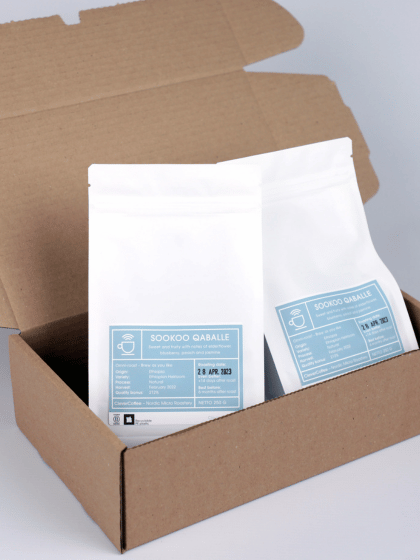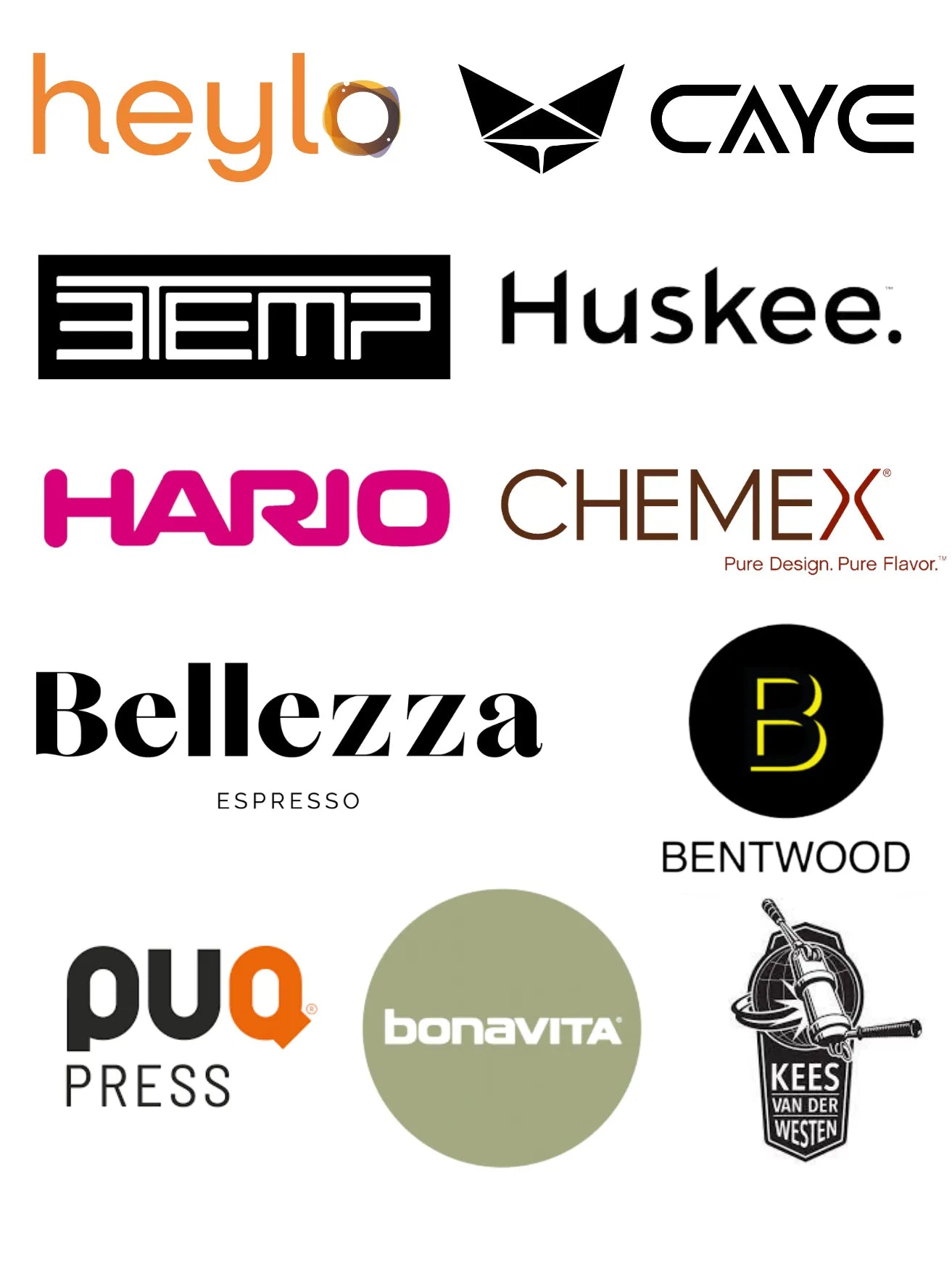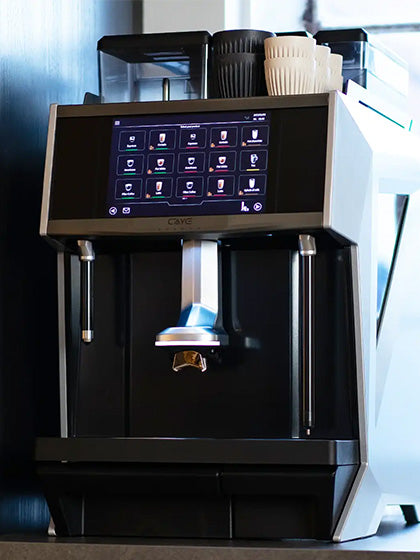CleverCoffee Whistleblower Policy
CleverCoffee's whistleblower system aims to increase the opportunities for CleverCoffee's employees and possibly other groups of people - see more below - can speak about objectionable conditions in the workplace without fear of negative consequences. The purpose of the whistleblower system is to ensure openness and transparency in relation to possible (law) violations and serious irregularities.
CleverCoffee's whistleblower scheme must be seen as a supplement to the direct and daily communication in the workplace about mistakes and unsatisfactory conditions, etc. The system also constitutes a supplement to existing options for e.g. to contact the nearest manager or coordinator.
CleverCoffee encourages the use of the whistleblower system so that any violations can be dealt with quickly and efficiently internally. However, the whistleblower is free to choose between submitting a report to the workplace's whistleblower system or an external whistleblower system (Datatilsynet).
CleverCoffee's whistleblower system does not exclude the possibility of reporting via external channels such as supervisory authorities.
CleverCoffee's whistleblower unit
Reports to CleverCoffee's whistleblower system are processed by Digital Coordinator, Kristian Thomassen.
Questions about the individual reports or CleverCoffee's whistleblower system as a whole can be directed to Kristian at krth@clevercoffee.dk.
Reports are made through the sheltr system, which facilitates an impartial and secure reporting channel, where the whistleblower can create reports, communicate (anonymously) with the case manager and where personal data is handled in relation to relevant legislation. The system can be contacted via their contact form . Link to CleverCoffee's portal at shelterr can be found on the website here .
Processing of reports may also, depending on the content and nature of the report, be done with the help of an external party, for example a lawyer or accountant.
Reportable Information
CleverCoffee's whistleblower system can be used to report information about serious violations or other serious matters that cannot necessarily be attributed to a specific offence. You can report on conditions that have taken place or will take place in CleverCoffee.
An offense or other matter will generally be serious if it is in the public interest to bring it to light. Violations of a trivial nature are not covered, just as violations of accessory provisions are not covered either.
Reports about the whistleblower's own employment are not covered as a rule, unless it is sexual harassment or serious harassment.
Information about other conditions, including information about violations of internal guidelines of a less serious nature, such as rules on sick leave, clothing and information on other personnel-related conflicts at the workplace will not, as a rule, be considered gross violations and must therefore not be reported to CleverCoffee's whistleblower system. In accordance with current guidelines, such information can be submitted to the immediate manager or the trade union representative.
It is assumed that the whistleblower is in good faith about the accuracy of the information.
Appendix 1 lists examples of serious offences, serious conditions and information which are not covered by the whistleblower scheme.
Reporting of violations
Reporting to CleverCoffee's whistleblower system must be done from the website via sheltr's platform . Here, the whistleblower can follow the platform's instructions for creating reports.
Anonymous reports can be made.
The following groups of people can use CleverCoffee's whistleblower system:
- The company's employees
- Management and board members
- Suppliers, customers and other business partners
Processing of reports
In connection with the receipt of a report, CleverCoffee will process the receipt within seven days and provide the whistleblower with confirmation of receipt of the report.
CleverCoffee's whistleblower unit will then carefully follow up on the report. The content and character of the report are decisive for how to follow up.
The whistleblower unit will initially decide whether the report falls within the scope of the whistleblower scheme. If the report falls outside the scope of the whistleblower scheme or is obviously unfounded, the report will be rejected.
If the report falls within the scope of the law, the report will be processed. This means, among other things, that CleverCoffee's whistleblower unit, depending on the content and nature of the report, will obtain additional information internally within the organization. Depending on the circumstances, and if possible, this may also involve further dialogue with the whistleblower.
Examples of follow-up:
- Initiation of an internal investigation in the company.
- Orientation of the company's top management or board of directors.
- Report to the police or relevant supervisory authority.
- Case closed due to lack of or insufficient evidence.
The whistleblower unit will provide feedback to the whistleblower within three months of receiving the report. This means that the whistleblower unit, depending on the content and nature of the report, will inform the whistleblower about which measures have been initiated or are intended to be initiated, and why the unit has chosen this follow-up.
If it is not possible to provide feedback within the deadline, CleverCoffee's whistleblower unit will inform the whistleblower of this and whether any further feedback can be expected. It can, for example, is because an internal investigation has been launched that cannot be completed within the deadline.
The feedback must comply with applicable legislation, including data protection legislation. This means, among other things, that there must be a basis for passing on sensitive information. It depends on a concrete assessment of what information can be provided in the follow-up to the whistleblower.
Confidentiality and processing of information
Employees associated with CleverCoffee's whistleblower unit have a special duty of confidentiality in relation to the information included in the reports.
The duty of confidentiality only covers information included in the report. If a report gives rise to the initiation of a case, the other information collected in that connection will not be covered by the duty of confidentiality.
CleverCoffee's whistleblower unit treats reports as confidential as far as possible.
Information from a report is processed in accordance with the processing rules in Section 22 of the Whistleblower Act and in the Data Protection Regulation and Act. CleverCoffee's whistleblower unit may, in accordance with Section 22 of the Whistleblower Act, process personal data, including sensitive information and information about criminal matters, if it is necessary to process a report received in connection with CleverCoffee's whistleblower scheme.
Information from a report can be passed on depending on the circumstances, e.g. with the aim of following up on the reports. The whistleblower will be notified prior to disclosure of information about the whistleblower's identity, unless doing so would jeopardize a related investigation or legal proceeding. It will e.g. could be the case if such notification is concretely assessed to entail a risk that evidence will be hidden or destroyed, that witnesses will be influenced, or if there is a suspicion that the whistleblower has deliberately submitted a false report.
Protection of whistleblowers
A whistleblower must not be subjected to reprisals, including threats of or attempts at reprisals, because the person concerned has made a report to CleverCoffee's whistleblower unit or an external whistleblower scheme (the Danish Data Protection Authority). Furthermore, the whistleblower must not be prevented or attempted to be prevented from making reports.
Retaliation is understood as any form of unfavorable treatment or disadvantageous consequence in response to an internal or external report which causes or may cause harm to the whistleblower.
The whistleblower cannot be held liable for reporting confidential information if he or she has reasonable grounds to assume (good faith) that the information in a report is necessary to reveal a serious offense or serious matter.
Attempts by CleverCoffee's employees or management to prevent a whistleblower from making a report or to retaliate against a whistleblower who has reported in good faith will result in employment law consequences.
Additional information
The Ministry of Justice has prepared a guide for persons who wish to submit or are considering submitting information as a whistleblower. The guide provides an overall description of the whistleblower act, including descriptions of whistleblower schemes, reporting options. Whistleblower's rights and protection of whistleblowers. The guide can be downloaded from the Ministry of Justice's website www.jm.dk.
Appendix 1.
Examples of serious offences
Violations of the Criminal Code that will generally be covered by the scope:
- Bribery, cf. § 144 of the Criminal Code.
- Document forgery, cf. § 171 of the Criminal Code.
- Hacking, eavesdropping, recording of conversations between others, etc., cf. § 263 of the Criminal Code.
- Theft, cf. § 276 of the Criminal Code.
- Embezzlement, cf. § 278 of the Criminal Code.
- Fraud, cf. § 279 of the Criminal Code.
- Data fraud, cf. § 279a of the Criminal Code.
- Mandate fraud, cf. § 280 of the Criminal Code.
- Blackmail, cf. § 281 of the Criminal Code.
Violations of special legislation or other legislation that will generally be covered by the scope of application
- Violations of tax legislation.
- Violation of non-disclosure obligations.
- Violations of the Accounting Act.
- Violations of the goods transport act, cf. the goods transport act §§ 17-17 b.
- Violations of the Aviation Act, cf. Section 149 of the Aviation Act.
- Disregard of a statutory duty to act.
- Violation of rules on the use of force.
- Gross or repeated violations of principles of administrative law, including the principle of investigation, requirements for objectivity, the principle of abuse of power and proportionality (cf., however, further below on trivial violations).
- Deliberate misleading of citizens and business partners.
Harassment
- Sexual harassment, cf. the Equal Treatment Act § 1, subsection 4, cf. subsection 6.
- Serious harassment, e.g. because of race, sex, colour, national or social origin, political or religious affiliation.
Examples of serious conditions
Conditions that are generally considered serious:
- Disregarding professional standards, which e.g. could result in a risk to people's safety and health.
- Gross or repeated violations of the workplace's internal guidelines on e.g. business trips, gifts or accounting (cf., however, in more detail below regarding trivial violations).
- Serious errors and serious irregularities associated with IT operations or IT system management.
- Special cases where minor cooperation difficulties involve major risks, and thus constitute a serious relationship.
Examples of information that is not covered by the scope of the law
- Information of a trivial nature, information about other conditions, including information about violations of internal guidelines on sick leave, smoking, clothing or ancillary regulations such as e.g. non-compliance with documentation obligations.
- Information about the whistleblower's own employment, including conflicts between employees, cooperation difficulties or conditions that fall under the industrial law system, unless it is a question of sexual harassment or other forms of serious harassment.












